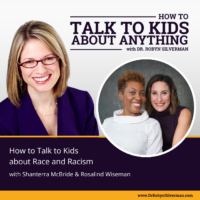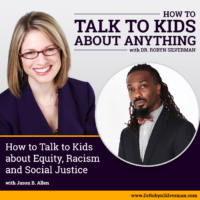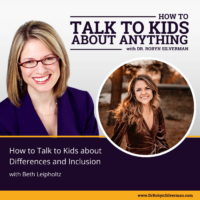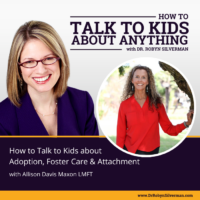Podcast: Play in new window | Download
Subscribe: Apple Podcasts | RSS | More
How to Talk to Kids About Drugs and Alcohol
This podcast will focus on how to talk to kids about drugs and alcohol when they are faced with peer pressure and exposure at parties, in school and when with friends. The key is to create an environment where children feel that they can ask questions and divulge information without being judged. Once you create an open environment, you can lay the early groundwork for conversations about drugs and alcohol that can become more advanced and nuanced as the children become teenagers.
Many conversations we discuss on this show hold incredible importance and relevance to our lives—but talk of drugs and alcohol abuse—certainly when we hear stories of addiction and overdose often, can grip many parents and educators. Some have seen the fallout from drugs and alcohol abuse first hand—others see how it’s played out in the movies from Sandra Bullock in 28 Days to Meg Ryan in When a Man Loves a Women, Leonardo Decaprio in Basketball Diaries to the newly released Ben is Back with Julia Roberts. 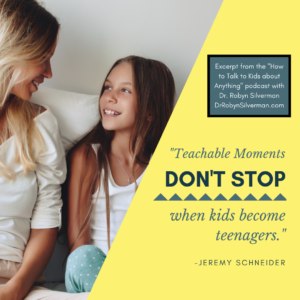 So how do we start these vital conversations with our kids about drugs and alcohol so they can have the information they need to make safe and informed choices in real life situations? Do we really need to start these conversations early and how often do we need to talk about it? How can the drugs and alcohol conversation collide head on with the sex conversation? And finally, how can dads get uniquely involved in this conversation? I’m going to speak with Jeremy Schneider today and together, we’ll give you the information you need to start to talk to your kids about drugs and alcohol.
So how do we start these vital conversations with our kids about drugs and alcohol so they can have the information they need to make safe and informed choices in real life situations? Do we really need to start these conversations early and how often do we need to talk about it? How can the drugs and alcohol conversation collide head on with the sex conversation? And finally, how can dads get uniquely involved in this conversation? I’m going to speak with Jeremy Schneider today and together, we’ll give you the information you need to start to talk to your kids about drugs and alcohol.
Jeremy G. Schneider is a marriage and family therapist and speaker whose career spans more than 15 years of working with individuals and families, focusing on parenting, relationships and mental health. He is the author of Fatherhood in 40-Minute Snapshots, a book that reveals how love for oneself, his children and family can flourish over time. Jeremy has been featured in The New York Times, TODAY and CNN. He lives and works in New York City with his wife, Gem, and his son and daughter, Lucas and Dorit.
The podcast provides:
- How we can create a safe environment where our children feel safe asking us questions and divulging information or concerns about drugs and alcohol.
- Tips to talk to kids about drugs and alcohol
- How dads and men can get uniquely involved in this conversation
- How to cope with questions about our own history and encounters with drugs or alcohol
- What to say when someone in the family has a drug or alcohol abuse problem.
- How parents can deal with their children attending parties where alcohol or drugs might be present
- What to say when your child feels like “everyone else” is trying drugs or drinking alcohol.
- When you’ve had the early conversations, you can ask the sensitive questions and they don’t seem intrusive.
- What to do about medical drugs that could be abused
- Top tips and scripts to talk to kids about drugs or alcohol
Important Messages:
- Create an environment in infancy or toddlerhood- that is open. You can ask questions about THIS and so you can ALSO ask
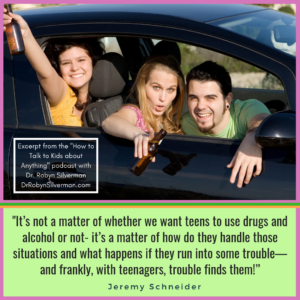 questions about anything else.
questions about anything else. - State your feelings, values and opinions about drugs and alcohol and what you hope they do when they are exposed to it. You need to have these conversations with your children when they are young—but again and again as they get older. The early conversations don’t just last for 10 years. Customize based on maturation level.
- Don’t lecture- use media as a springboard. Ask questions.
- You can not WANT them to do drugs or drink alcohol—but you have to prepare them if they are exposed to them.
- If you feel your child is going to try drugs or try alcohol, it’s important to talk to your children about being safe. Don’t just drink from a cup that some random person hands you! It’s not just “don’t do it!” it’s what you want them to do if they DO try it.
- You can’t afford to NOT talk to them about this topic- and the nuances of it- even if it makes you uncomfortable. It must go beyond “I don’t want you to do it.”
- You can admit what you did but still be genuine, tell them that you don’t want to do it or wait a little longer, or that you felt it was a mistake—if that’s how you feel!
- Tell them the more nuanced story—not just whether you did drugs or used alcohol or not—but how you felt about it- so they can make a better choice for themselves.
- Help your children know who the trusted adults in their lives—who they can go to if they need to talk about sensitive topics—or call on for help in a sticky situation.
- Dads need to think about the energy they are putting off and if they are conveying that kids can talk to them about any and all topics. That can be alienating.
- Any child can be exposed to drugs and alcohol and fall into addiction—open lines of communication can help. Strong relationships- can help mitigate problems with drugs and alcohol- but even the best parents and the best kids can run into these issues and have problems.
- If someone in the family is suffering from addiction, you might shield your children from that experience early on in their lives. However, as your children become older, you are going to want to have a genuine conversation about how drugs or alcohol affects this loved one. It’s so the child knows that the behavior is not “that person” but also so they can see what you don’t want your kids to do.
- How do you deal with parties with alcohol that your children might attend. Sets an unfortunate precedent and puts kids at risk—we need to check on the kids who are at our home. It’s our job to keep our children safe. Have to talk about things like how do you get out of uncomfortable situations you find yourself in and what to do when someone offers you drugs and alcohol.
- It’s an option to use a lock box for medications to keep them safe while kids in the house.
- Kids need to understand that drugs and alcohol can impact different people differently. Even medical drugs can impact people in different ways.
- If a child tells you that everyone is trying something- ask, what does that mean? Why are you telling me? Is this your way of saying that you want to try it? They may be unsure- and want to know more about it. We must read between the lines. Are you thinking about this? Uncomfortable with this? Tests the waters. You don’t want to shut down the conversation. That shuts the door.
- Teachable moments don’t stop when kids become teenagers.
- “I went to a party and people were drinking.” “What was that like for you?”
- Make sure to spend time with your kids—opportunities for conversations to happen organically. Conversations happen when we make the time for them to happen! For example, dinner time. Regular check ins. As many chances as possible to share.
- Try to keep yourself calm and Zen like even when it’s hard!
Notable Quotables:
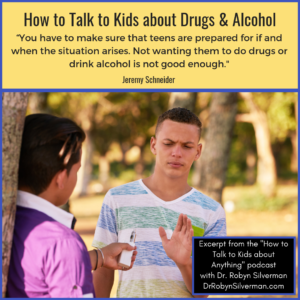 “When talking about drugs and alcohol with your kids, it doesn’t have to be a lecture. You might see a reference to it on a TV show and you could ask; ‘have any of your friends tried that?’ Or ‘do you know how we feel about that?’ Or ‘do you know why we want you to wait on doing that?’ You can have a conversation that tells them ‘these are our feelings and our beliefs about what we hope you will do when you are in situations when you are exposed to drugs and alcohol.’”
“When talking about drugs and alcohol with your kids, it doesn’t have to be a lecture. You might see a reference to it on a TV show and you could ask; ‘have any of your friends tried that?’ Or ‘do you know how we feel about that?’ Or ‘do you know why we want you to wait on doing that?’ You can have a conversation that tells them ‘these are our feelings and our beliefs about what we hope you will do when you are in situations when you are exposed to drugs and alcohol.’”- “With the drugs and alcohol conversation– the more barriers we can erase, the better groundwork we can lay with our kids early on. It makes it easier for us to check in with our kids and for our kids to come to us when something is going on.”
- “When it comes to drugs and alcohol; we have to assume that they are going to do it and prepare them for that.”
- “You can WANT them to not do drugs and alcohol for the rest of your life but you have to make sure that they are prepared for if and when that situation arises. Not wanting them to do drugs or drink alcohol is not good enough for them.”
- “When it comes to drugs and alcohol, you have to prepare them just in case. We want them to be ready of someone offers them drugs. If they are exposed to it, what do I want them to do? Can they call be from a party even if it’s 1am?
- “It’s not a matter of whether we want them to use drugs and alcohol or not- it’s a matter of how do they handle those situations and what happens if they run into some trouble—and frankly, with teenagers, trouble finds them!”
- “When the kids are younger, you can be a lot more black and white in conversations. But when the kids become teenagers, there’s a lot more gray.”
- “You don’t have to be honest about everything you did when you were younger—but being genuine really makes a difference.”
- “Our kids’ emotional and physical safety is more important than the rules and beliefs about what we think is right and wrong.”
- “Even the best of parents can have kids that suffer from addiction but the chances are better when the parents are involved and engaged in their children’s lives on a regular basis.”
- “The truth of the matter is that our kids are going to be dealing with difficult situations for the rest of their lives. That is the “joys of being a human being.” The earlier our kids develop those skills, the stronger they’ll be when they enter college or their first job. It’s not just about teaching them skills to deal with drugs and alcohol but teaching them skills to deal with challenging and sometimes scary situations.”
- “Most teenagers don’t come to us and tell us that they are going to try a drug.”
- “Teachable moments don’t stop when kids become teenagers.”
- “If our kids are raising the subject with us, more often than not, they want to talk to us about it!”


